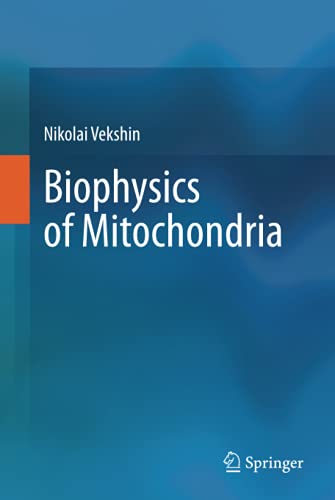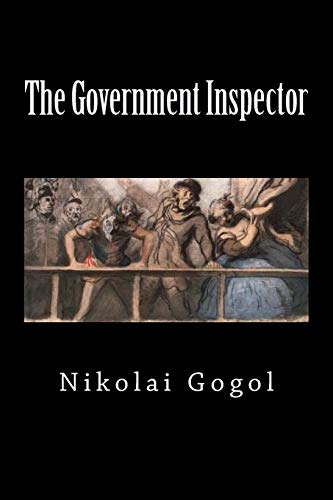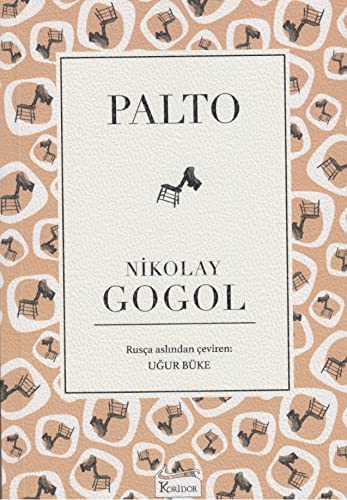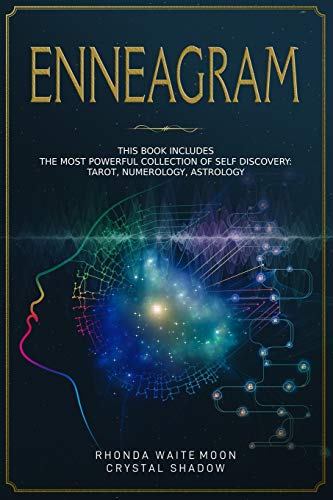
Nose-Original Edition(Annotated)
by Nikolai Gogol- First published
- 2021
- Publishers
- Independently Published
- Language
- English
About Nikolai Gogol
Nikolai Gogol (born in Sorochyntsi, Poltava Governorate, Russian Empire, present-day Ukraine) - Russian writer of Ukrainian descent. Gogol's mother was a descendant of Polish nobility. Gogol's father Vasyl Hohol-Yanovsky, a Ukrainian writer best known for his plays, died when Gogol was 15 years old. In 1820 Gogol went to a school of higher art in Nizhyn and remained there until 1828. It was there that he began writing. Very early he developed a dark and secretive disposition, marked by a painful self-consciousness and boundless ambition. Equally early he developed an extraordinary talent for mimicry which later on made him a matchless reader of his own works.In 1828, on leaving school, Gogol came to Petersburg. He had hoped for literary fame and brought with him a Romantic poem of German idyllic life – Ganz Küchelgarten. He had it published, at his own expense, under the name of "V. Alov." The magazines he sent it to almost universally derided it. He bought all the copies and destroyed them, swearing never to write poetry again.Gogol was one of the first masters of the short story, alongside Alexander Pushkin, Prosper Mérimée, E. T. A. Hoffmann, and Nathaniel Hawthorne. He was in touch with the "literary aristocracy", and was taken up by Vasily Zhukovsky and Pyotr Pletnyov, and (in 1831) was introduced to Pushkin.In 1831, he brought out the first volume of his Ukrainian stories (Evenings on a Farm Near Dikanka), which met with immediate success. He followed it in 1832 with a second volume, and in 1835 by two volumes of stories entitled Mirgorod, as well as by two volumes of miscellaneous prose entitled Arabesques. At this time, Gogol developed a passion for Ukrainian history and tried to obtain an appointment to the history department at Kiev University. His fictional story Taras Bulba, based on the history of Ukrainian cossacks, was the result of this phase in his interests. Between 1832 and 1836 Gogol worked with great energy, though almost all his work has in one way or another its sources in his four years of contact with Pushkin. Only after the presentation, on 19 April 1836, of his comedy The Government Inspector (Revizor) that he finally came to believe in his literary vocation.From 1836 to 1848 he lived abroad, travelling throughout Germany and Switzerland, as well as spending the winter of 1836–1837 in Paris.Pushkin's death produced a strong impression on Gogol. His principal work during years following Pushkin's death was the satirical epic Dead Souls. Concurrently, he worked at other tasks – recast Taras Bulba and The Portrait, completed his second comedy, Marriage (Zhenitba), wrote the fragment Rome and his most famous short story, The Overcoat.After the triumph of Dead Souls, Gogol came to be regarded as a great satirist who lampooned the unseemly sides of Imperial Russia. However, Dead Souls was but the first part of a counterpart to The Divine Comedy. The first part represented the Inferno; the second part was to depict the gradual purification and transformation of the rogue Chichikov under the influence of virtuous publicans and governors – Purgatory.His last years were spent in restless movement throughout the country. He intensified his relationship with a church elder, Matvey Konstantinovsky. He seems to have strengthened in Gogol the fear of perdition by insisting on the sinfulness of all his imaginative work. His health was undermined by exaggerated ascetic practices and he fell into a state of deep depression. On the night of 24 February 1852, he burned some of his manuscripts, which contained most of the second part of Dead Souls. He explained this as a mistake, a practical joke played on him by the Devil. Soon thereafter, he took to bed, refused all food, and died in great pain nine days later. For goodread's profile in Russian, see Николай Васильевич Гоголь...
Books

Dead Souls(annotated)
Nikolai Gogol

Biophysics of Mitochondria
Nikolai Vekshin

Diary of a Madman
Nikolai Gogol

Tissue Barriers in Disease, Injury and Regeneration
Nikolai V. Gorbunov

Bir Dünya Öykü Seti
Ryunosuke Akutagava, Nikolay Vasilyeviç Gogol, Jack London, Victor Hugo, …

Dead End Kids
Frank Gogol

Diary of a Madman Annotated
Nikolai Gogol

Burun
Nikolay Gogol

Paradigm of Social Interaction
Nikolai Genov

Dead Souls
Nikolai Gogol

Taras Bulba : (Annotated Edition)
Nikolai Nikolai Gogol

Taras Bulba Annotated
Nikolai Gogol

Dead Souls Illustrated
Nikolai Gogol

Dead Souls
Nikolai Gogol

Nose Illustrated
Nikolai Gogol

Dead Souls by Nikolai Gogol Annotated Edition
Nikolai Gogol
In gogol's time, a russian landowner could buy and sell serfs, or "souls," like any other property.

Travels from Moscow, Through Prussia, Germany, Switzerland, France, and England
Nikolai Mikhailovich Karamzin

Biophysics of Mitochondria
Nikolai Vekshin

Münakaşa
Nikolay Gogol

Overcoat
Nikolai Gogol
The overcoat which is generally acknowledged as the finest of gogol's memorable saint petersburg stories, is a tale of the absurd and misplaced obsessions.

World War II Battle by Battle
Nikolai Bogdanovic

Chlorogenic Acids
Nikolai Kuhnert

The Government Inspector
Nikolai Gogol

Dead Souls
N. Gogol

Programme of the World Revolution
Nikolai Ivanovich Bukharin
This work has been selected by scholars as being culturally important and is part of the knowledge base of civilization as we know it.

Station Russia
Nikolai Molok

Dead Souls
Nikolay Vasilyeviç Gogol

Palto
Nikolay Gogol
En çok okunan klasikler, özenli çevirilerle ve alanında uzman akademisyenlerin editörlüğünde okuyucuyla buluşuyor.

Magen Darm Rezepte
Nikolai Lichtenfels

Burun
Nikolay Vasilyeviç Gogol

Physiology of the Cladocera
Nikolai N. Smirnov
Physiology of the cladocera, second edition, is a much-needed summary of foundational information on these increasingly important model organisms.

Key Factors of Combustion
Nikolai M. Rubtsov

800 Days on the Eastern Front
Nikolai Litvin
During his 800 days of war, nikolai litvin fought at the front lines in the ferocious tank battles at kursk, was wounded three times, and witnessed unspeakable brutalities against prisoners and civilians.

Physiology of the Cladocera
Nikolai N. Smirnov

Ubiĭt︠s︡a po vyzovu
Nikolaĭ Leonov

Ölü Canlar Ciltli
Nikolay Vasilyeviç Gogol
En çok okunan klasikler, özenli çevirilerle ve alanında uzman akademisyenlerin editörlüğünde okuyucuyla buluşuyor.

Rublevyĭ peredoz
Nikolaĭ Leonov

Dead Souls
Nikolai Gogol

How The Steel Was Tempered
Nikolai Ostrovskiy
How the steel was tempered is a socialist realist novel written by nikolai ostrovsky.

Key Factors of Combustion
Nikolai M. Rubtsov
This book summarizes the main advances in the mechanisms of combustion processes.

Russian Revolution 1917
Nikolai Nikolaevich Sukhanov
Author of the only full-length eyewitness account of the 1917 revolution, sukhanov was a key figure in the first revolutionary government.

Mertvye dushi
Gogol' N.
Поэма "Мертвые души" еще при жизни автора была переведена на множество других языков.

Schatztaucher
Nikolai von Michalewsky

The Mysterious Portrait
Nikolai Gogol
The portrait is a short story by nikolai gogol, originally published in the short story collection arabesques in 1835 and is one of gogols' most demonic of tales, hinting at some of his earlier works such as "st.

Spisok prigovorennykh
Nikolaĭ Leonov

The Nose
Nikolai Gogol
This early work by nikolai gogol was originally published in 1835 and we are now republishing it with a brand new introductory biography.

Ukraina
Nikolaĭ Starikov

Korupt︠s︡ii︠a︡ta vuv Vishegradskata chetvorka
Nikolaĭ Skarlatov

Dichte
Nikolai Roskamm
Immer dann, wenn �ber stadt und raum gesprochen wird, spielt der begriff �dichte� eine zentrale rolle.

Mertvyĭ ostrov
Nikolaĭ Svechin

Radiation Legacy of the Soviet Nuclear Complex
Nikolai N. Egorov
A study of the legacy of nuclear contamination in the soviet union.

Mantle, and Other Stories
Nikolai Gogol

Amerika: ischadie raya
Nikolai Zlobin
Кто-то видит в Америке глобальное зло, врага на все времена, настоящее исчадие ада.

Physiology of the Cladocera
Nikolai N. Smirnov

Otasu
Nikolaĭ Vishnevskiĭ

Zhiznʹ i dei︠a︡telʹnostʹ mitropolita Gavriila Banulesku-Bodoni
Nikolaĭ Florinskiĭ
Similar books

98 Ans d'Être Génial édition Limitée de Juillet 1923
98 ans anniversaire femme et l'homme Carla Anwen

Activity Coloring Book for Kids Ages 2-8
Elizabeth H. Elizabeth H Jones

Weather Log Book
Cozia Rerah

戀愛
飛騨俊吾

Lion Drawing for Kids
Zubair Khan

My First Toddler Coloring Book
Hill Publication

Crimson Fairy Book Illustrated
Andrew Lang

Noom Diet for Beginnrs 2022
Joy Elizabeth

Cuaderno de Contabilidad
Mis Recuerdos

Ideenbuch
Steffi Design

December 2020 My 12th Birthday the One Where I Was Quarantined
William quarantine

No Puedes Hackear un Libro
Hackear Pirata

Machine Stops :(Illustrated Edition)
E. M. Forster

Mein Abgefahrenes Fingerstempelbuch Für Kinder Ab 2 Jahren
Kleine KlecksKünstler

Pride and Prejudice
Austen, Jane

Desert of Wheat Illustrated
Zane Grey

Squirrel Calendar 2022
Squirrel CALENDARS

Othello Illustrated
William Shakespeare

Educating Edward's Number Tracing Book
Emma Vinton

Temperature Log Book
nhbgvop mplokwazq

Morgens Müde Abends Blau Fischer
Sebastian Morgen

House of Mirth Illustrated
Edith Wharton

Woman in Black Illustrated
E. C. Bentley

Mr Standfast (Illustaerted)
John Buchan

Wuthering Heights Illustrated
Emily Bronte

Cuentos para Ti y para Mi
Sebastián Prado Muñoz

HÀIKYUU!! 2022 Calendar
Alpirtho DIASSE

Nostromo
Kingfisher Classics

Sylvia's Lovers Illustrated
Elizabeth Gaskell

Womans Trials
Timothy Arthur

Boston Terrier Pekingese Mix Puppies Calendar 2022
Robert Publishing

Javascript for Beginners
Mark Whistler

Klondike Nuggets and How Two Boys Secured Them
Edward Ellis

Hannibal : (Aberdeen Classics Collection)
Aberdeen Press

Aren't All Cats Wild Cats?
Keena Tomko

Always Believe in Yourself. Self Esteem Journal
Cristina Joy

Professor Illustrated
Charlotte Brontë

Summary into the Abyss
Book PRO

Crochet Adorable Fruits
Phifer DUSEAN

Technology 3-ESO
Juan Pedreño Bernal

Voice in the Fog Illustrated
Harold MacGrath

Geschenk 33 Geburtstag Mann, Frau, Notizbuch
Sebastian Hudson

Karura at Night
Tracy Thomas

Mandala Coloring Books for Adults
Liam Augustine

Silverado Squatters-Classic Edition(Annotated)
Robert Louis Stevenson

File No. 113 (Annotated)
Émile Gaboriau

Spiritual Path of Purpose
John Horan-Kates

My First Ellinika Dictionary
kasahorow

Alice's Adventures in Wonderland
Carroll, Lewis

Joie de Vivre
Emile Zola

White Fang Illustrated
Jack London





